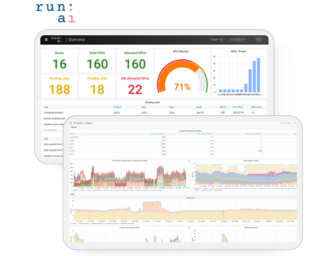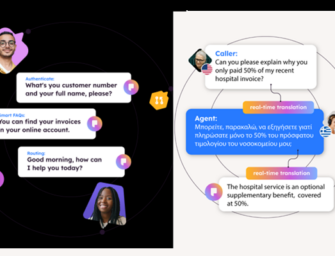Businesses and Consumers Growing to Love Voice Assistants: Report
Businesses are seeing a lot of benefits in using AI to interact with consumers, according to a report by the Capgemini Research Institute. The increasing appreciation for using voice assistants to interact with businesses and organizations matches the rise in use and satisfaction with voice assistants overall, as discussed in our previous look at the report.
Business AI for Consumers
 The report examined the use of both voice and text AI interactions, with 76% of businesses reporting measurable benefits from integrating voice and chat assistants into their features. Even when just the voice AI data is examined, however, the numbers are notable. The survey, which gathered answers from more than 1,000 executives this past spring, found that nearly four out of five businesses were saving more than 20% in customer service costs and four man hours a day as a result of adding a voice assistant to interact with consumers.
The report examined the use of both voice and text AI interactions, with 76% of businesses reporting measurable benefits from integrating voice and chat assistants into their features. Even when just the voice AI data is examined, however, the numbers are notable. The survey, which gathered answers from more than 1,000 executives this past spring, found that nearly four out of five businesses were saving more than 20% in customer service costs and four man hours a day as a result of adding a voice assistant to interact with consumers.
The exact role of the voice assistant and the developers, in-house or otherwise, varied among the companies, but the high rate of quantifiable improvements the companies saw is notable. And the customer satisfaction with companies using the voice assistants is growing as well. According to the report, more than half of the companies using voice assistants have reported a sharp rise in customer approval of their voice assistants, as measured with the Net Promoter Score.
“This research establishes that conversational assistants are the future of customer interactions, valued by consumers for their convenience and by companies for the operational efficiencies they enable,” said Capgemini Invent head of customer engagement Mark Taylor, said in a statement about the report. “Compared to our study released in early 2018, a much higher proportion of consumers now foresee voice assistants as their first choice within the next three years. In the meantime, the expectations of customers are evolving as they progressively use the technology.”
Big Numbers, Small Pool

While the results from businesses using voice assistants were very positive, the actual number of businesses adding the technology to their operations is still relatively small. Fewer than half of the top companies in major industries like cars, retail, banking, and insurance have a voice assistant at the moment, although the automotive industry is almost at the 50% mark.
The satisfaction of consumers with voice AI suggests the scope of businesses using the technology will grow. Anticipating that growth, there are more options than ever for companies looking to add voice AI to their operations. Virtual phone agents can be custom-designed for businesses by developers like FrontdeskAI for example. For bigger companies handling a large volume of incoming calls, Inference Solutions has its own slate of virtual agents. Then there are the giants like Google, which just this week put out a major update for CallJoy, a voice AI service aimed specifically at smaller businesses with limited staff resources.
Whatever system they use, Capgemini suggests the best way to use voice assistants is to experiment with a mix of human and automated services to find what customers are most comfortable with. Customer trust is what matters. If consumers feel comfortable with the voice assistant and see it as reliable, the report concludes, then all of the benefits of bringing voice assistants into a business will follow.
Follow @voicebotai Follow @erichschwartz
Overall Consumer Voice Assistant Use Rises Deceptively Quickly: Report
Google Adds Improved AI and Customization to Small Business Voice AI Service CallJoy
FrontdeskAI Turns Gym’s Virtual Customer Service into $30K Savings a Year









